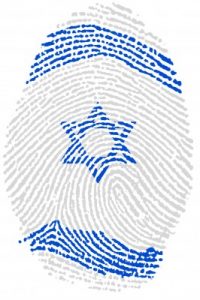 When it comes to proving the existence of God and the truthfulness of His Word, it’s easy to come up short. As believers in Yeshua, we often present subjective or debatable evidence, such as personal experience, miracles, and fulfillment of Bible prophecy. But demonstrations of power and foreknowledge aren’t necessarily measures of truthfulness. Rather, we trust what someone says when we believe he is true to his word… when we believe he will keep all his promises. So why should we trust that God’s Word is true, that He exists, and that He is who He says He is? Because He has faithfully kept one objective, verifiable, and undebatable promise: Adonai has continued to preserve the Remnant of Israel from antiquity; He endures as the eternal guardian of the Jewish People. Read more
When it comes to proving the existence of God and the truthfulness of His Word, it’s easy to come up short. As believers in Yeshua, we often present subjective or debatable evidence, such as personal experience, miracles, and fulfillment of Bible prophecy. But demonstrations of power and foreknowledge aren’t necessarily measures of truthfulness. Rather, we trust what someone says when we believe he is true to his word… when we believe he will keep all his promises. So why should we trust that God’s Word is true, that He exists, and that He is who He says He is? Because He has faithfully kept one objective, verifiable, and undebatable promise: Adonai has continued to preserve the Remnant of Israel from antiquity; He endures as the eternal guardian of the Jewish People. Read more
 Most of us (I hope!) would say that we love the Word of God… that we depend on it, submit to it, and try our best to fully abide by what God says. But the way that sentiment is realistically worked out in each of our lives is often dramatically different. Sometimes those differences are caused by the pervasive influence of the world. Sometimes it’s because we selfishly pursue our own interests. But in my experience, the fundamental reason why we don’t approach our relationship with God and our reliance upon His Word in the same way is because we do not bear the same standard when it comes to living for Yeshua. The reason we fail to know God and listen to His Word is because our aim has drifted from the goal. Read more
Most of us (I hope!) would say that we love the Word of God… that we depend on it, submit to it, and try our best to fully abide by what God says. But the way that sentiment is realistically worked out in each of our lives is often dramatically different. Sometimes those differences are caused by the pervasive influence of the world. Sometimes it’s because we selfishly pursue our own interests. But in my experience, the fundamental reason why we don’t approach our relationship with God and our reliance upon His Word in the same way is because we do not bear the same standard when it comes to living for Yeshua. The reason we fail to know God and listen to His Word is because our aim has drifted from the goal. Read more
At the center of the Arab-Israeli conflict in the Middle East is a fundamental, socio-religious ideology that says Jews should not exist—anytime or anywhere—much less as occupants of the land presently known as the modern State of Israel. As a result, the Israeli State faces a constant and seemingly imminent threat to her national sovereignty and safety: Palestinian rockets and mortar shells launched almost daily toward Israeli territory; powerful Arab leaders with potential nuclear capabilities calling for the annihilation of the “Zionist regime;” escalating, internal conflicts within neighboring countries threatening to destabilize the entire region; the nations of the world continually demonizing every attempt made by the State of Israel to defend against her aggressors. Confronted by such contempt and antagonism, the government nevertheless tries to negotiate land for peace, with an Israeli/Palestinian two-state solution looming as inevitable. Yet the real and growing danger hanging over the State of Israel endures. Read more
As central as Passover is to the history of Israel and the narrative of our faith in Yeshua, those of us who celebrate it tend to do so at the expense of the greater picture. We focus so intently on the event of the seder—and the pomp and ceremony that traditionally surround it—that we fail to adequately prepare our hearts for the annual moment, missing the momentum for the season that Passover begins.
Every year, it pains me to see Passover treated as little more than a date on the calendar, a teaching event, or an evangelistic outreach (in certain Messianic circles). Additionally, I am grieved that many will default to mere attendance at a formal community seder, rather than expend the energy to personally prepare for an intimate remembrance in the home, according to Scripture. It is not because of disobedience, but for the missed opportunity that I grieve—an opportunity that, with only some forethought and effort, can be wholeheartedly embraced. Read more
The challenge to live the Messianic life is not unique to our day and age—in fact, the obstacles of life that cloud our understanding of the ways of God have proven to be a formidable foe since the beginning.
To the believers of Galatia, who were trapped by their own doctrines and misconceptions about the Messianic life, Paul wrote,
“With Messiah I have been crucified, and no more do I live, but Messiah lives in me; and that which I now live in the body, I live in the faith of the Son of God, who loved me and gave Himself for me…” Galatians 2:20
Click here to download “The Name” PDF.
This paper is related to the “Unholy War of Names” post, but is provided here so that it may have its own discussion thread.
The most obvious and symbolic element of Chanukah is the ’chanukiyyah (commonly, though inaccurately, called the m’norah), used for the commemoration of the alleged miracle. The chanukiyyah is usually a nine-branched candelabra designed to hold eight Chanukah candles, one for each night, plus the shamash (meaning “servant”). In typical fashion, the shamash is lit, then used to kindle each Chanukah light in turn: on the first night, one light; on the second night, two; and so on, until all eight lights are kindled on the last night of the Festival.
The chanukiyyah, while apparently ancient, is not explicitly prescribed by the Rabbis. Neither is the use of candles as Chanukah lights. Indeed, most of the Talmudic references are to oil lamps. For example, Mas. Shabbath 23a, discusses which kind of oil is best for kindling the Chanukah lights (evidently, it’s olive oil).
But what is truly intriguing about the traditions surrounding the chanukiyyah, is that the most common method used today for kindling the Chanukah lights was originally meant only for the “extremely zealous.” You may be surprised to know that according to Mas. Shabbath 21b, only one Chanukah light per household is “demanded,” and any increase in the number of lights is merely an indication of one’s “zeal.” According to the Rabbis, each household must light at least one Chanukah light per night; for the “zealous,” one light nightly for each member of his household; and for the “extremely zealous,” eight lights—with Beth Shammai saying to reduce the number by one each night, and Beth Hillel maintaining that the lights should progressively increase each night up to eight.
In short, there’s more than one way to kindle the Chanukah lights, and the traditions and rituals are not quite as fixed as we have been led to believe. Read more
In my book about The Real Story of Chanukah, I included a lengthy endnote about Christmas. For those interested in one Messianic Jew’s opinion, here it is in its entirety.
Since this is a significant issue among Messianics and Christians in pursuit of the “Jewish roots” of the faith, I feel that it is worthwhile to offer my perspective on Christmas. Personally, I have no problem with Christians celebrating Christmas. For sure, there are seriously pagan issues with the holiday and its accompanying icons (these facts are widely documented, and, since this is a book about Chanukah and not Christmas, I do not feel compelled to elaborate here), but as far as the Luke 2 tradition is concerned—where the sole and central purpose of celebrating Christmas is the recognition of Yeshua’s birth—I have no problem with it whatsoever. Read more
“A blogger writes about how one of Judaism’s holiest days ended, for her, in a strip club, while elsewhere a guy strolls into a tattoo parlor requesting a Star of David. Two women exchange wedding vows in a Jewish ceremony, and hipsters toss back bottles of HE’BREW, The Chosen Beer…. [Moses] couldn’t have seen these Jews coming.”
This is how a CNN article begins, showcasing the so-called “New Jews” and the ways they express their Jewishness: with flagrant violation of Torah, and a heart ablaze for assimilation. They are “making [Judaism] and its culture work for them and others in a time when, more than ever, affiliation is a choice.” It’s an astute observation by Ms. Ravitz (the article’s author), and one that should make us shudder: it’s happening again—as it has continually since the beginning—Jews choosing… as if we had a choice. Read more
I always have mixed emotions about Thanksgiving, because on the one hand, at its heart are two of my most favorite things: family and food! But on the other hand, it not only signals the beginning of the commercial winter holiday season (in which we are bombarded by merchandising and inducements to unnecessarily part with our finances), but, to a degree, it’s not really my holiday. I am only a second-generation American-born Jew, so before WWII, my ancestors knew nothing of the American Thanksgiving holiday (though it is indirectly related to our own Autumn Feast, Sukot). So, while I enjoy Thanksgiving on a familial, individual, and American level (because I am very thankful indeed for this country), it also reminds me that I—as my ancestors have been for centuries—am a stranger in a strange land… a man caught between worlds. Read more

